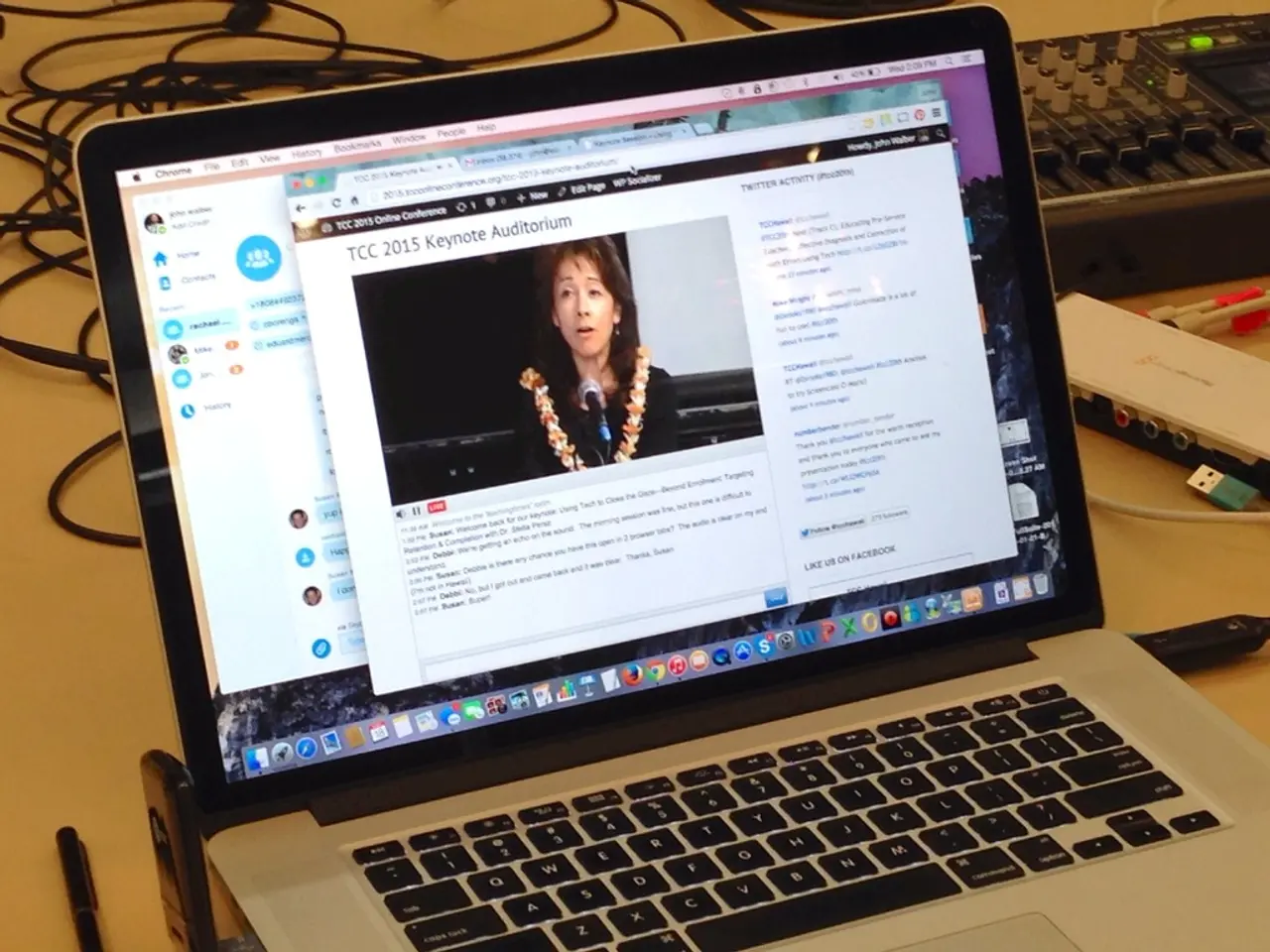In response to pressure, Google has consented to compensate Canadian news corporations for the distribution of their content.
In a significant development, Google and the Canadian government have reached an agreement on the contentious Online News Act. The tech giant will pay Canadian publishers an annual licensing fee of $100 million under this legislation, aimed at ensuring that large technology platforms pay for news content [2][3].
The Online News Act, set to go into effect in three weeks, targets tech platforms with 20 million unique monthly users and annual revenues of $1 billion CAD. The law was designed to address the growing crisis in the news business, where profits from advertising are being taken by tech behemoths [1].
Initially, Google threatened to shut off links to news content rather than pay publishers. However, Kent Walker, Google's President of Global Affairs, stated in a blog post that the government has committed to addressing Google's core issues with the Online News Act [5].
In contrast, Meta has not resumed talks with the Canadian government over the Online News Act. The company had previously blocked all news content on its platforms in Australia after the government passed a similar law in 2021 [6]. Meta claimed the blocking of links to Australian hospital and fire services was an accident, but employees said it was intentional [7].
The agreement between Google and the Canadian government includes a streamlined path to an exemption at a clear commitment threshold. Google will continue sending valuable traffic to Canadian publishers as they work through the exemption process based on the regulations that will be published shortly [8].
Despite this agreement, Canadian media stakeholders remain concerned about the broader impact of such legislation and evolving digital content distribution. The rise of AI summarizing news could potentially cut digital ad revenues severely [4]. The agreement marks a step forward in financial arrangements but does not fully solve the challenges faced by Canadian news publishers amid changing technology landscapes.
The Canadian government previously estimated the Online News Act would cost Google $127 million CAD, but the deal will reportedly bring the costs down to $100 million CAD [9]. The Australian government has also amended its law to let companies like Google and Facebook strike deals with publishers rather than pay a flat rate [10].
This deal between Google and the Canadian government is the first sign of compromise between Canada and Silicon Valley, setting a potential precedent for similar laws across the globe [11]. The agreement reflects a formalized resolution to payment negotiations, though challenges in news industry economics remain [2][3].
Sources:
[1] The Online News Act in Canada aims to address the growing crisis in the news business where profits from advertising are being taken by tech behemoths.
[2] The Online News Act, aimed at ensuring that large technology platforms pay for news content, led Google to establish this significant payment framework, recognizing the importance of supporting journalism financially amid declines in traditional news revenues.
[3] The deal between Google and the Canadian government is intended to address financial support for news publishers impacted by digital platform dynamics.
[4] Canadian media stakeholders remain concerned about the broader impact of such legislation and evolving digital content distribution, especially with the rise of AI summarizing news reducing traffic referral from platforms like Google to news sites, potentially cutting digital ad revenues severely.
[5] Kent Walker, Google's President of Global Affairs, stated in a blog post that the government has committed to addressing Google's core issues with the Online News Act.
[6] Meta blocked links to Australian hospital and fire services in retribution after the Australian government passed a similar law.
[7] Meta scrubbed news from Facebook and Instagram for Australian users after the Australian government passed a similar law in 2021.
[8] The deal includes a streamlined path to an exemption at a clear commitment threshold.
[9] The Canadian government previously estimated the Online News Act would cost Google $127 million CAD, but the deal will reportedly bring the costs down to $100 million CAD.
[10] The Australian government amended the law to let companies like Google and Facebook strike deals with publishers rather than pay a flat rate.
[11] The deal, if it works out, could set a precedent for similar laws across the globe.
- The Online News Act, a law designed to ensure that tech platforms pay for news content, has led Google to establish a significant payment framework, recognizing the importance of financially supporting journalism amid declines in traditional news revenues.
- The agreement between Google and the Canadian government includes a streamlined path to an exemption at a clear commitment threshold, allowing Google to continue sending valuable traffic to Canadian publishers as they work through the exemption process.
- The rise of AI summarizing news could potentially cut digital ad revenues severely for Canadian news publishers, according to concerns expressed by Canadian media stakeholders.
- The deal between Google and the Canadian government marks a step forward in financial arrangements for the tech industry, setting a potential precedent for similar laws across the globe, as it is a sign of compromise between Canada and Silicon Valley.




